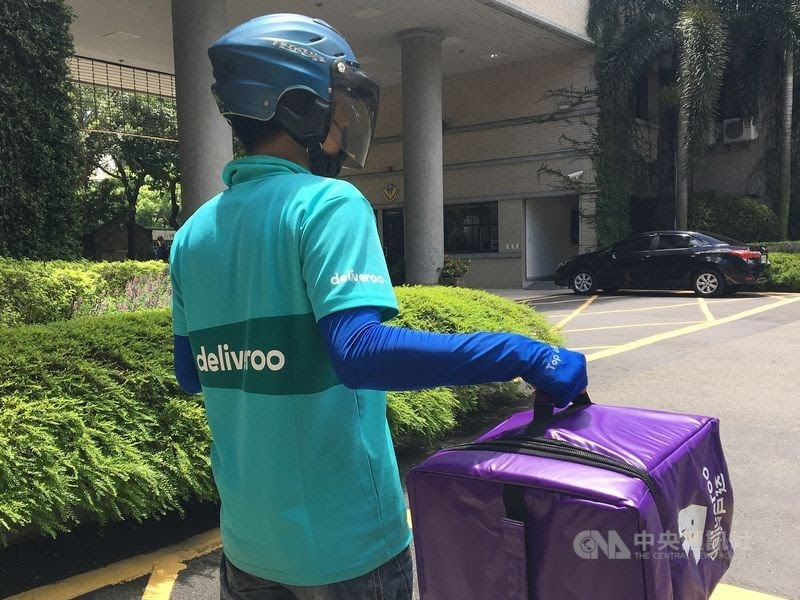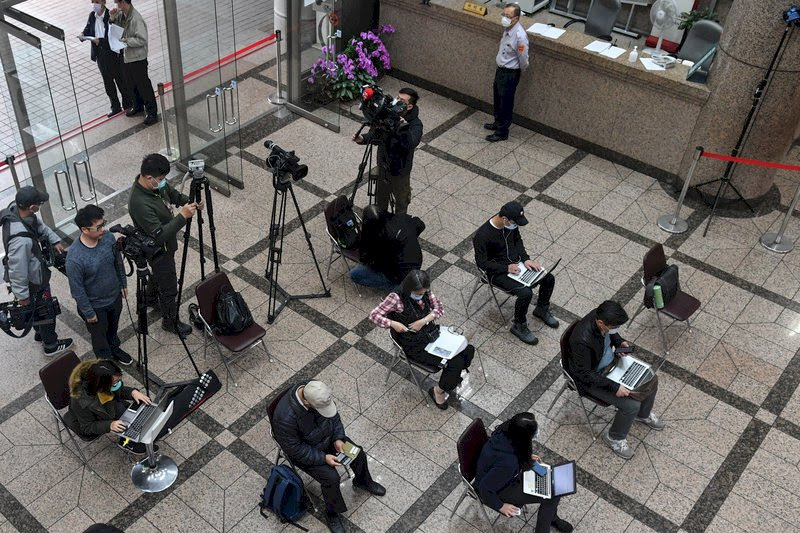|
Posted: 06 Apr 2020 12:43 PM PDT
Focus Taiwan
Date: 04/06/2020 By: Hsieh Ching-wen and Joseph Yeh  Taipei, April 6 (CNA) Taiwan's baseball authorities said Monday that its national teams in three different age brackets are automatically qualified to advance to the PONY Baseball world series events to be held later this year, after event organizers announced last week the cancellation of the Asia-Pacific regional competitions due to the ongoing COVID-19 pandemic. Taiwan's Chinese Taipei Baseball Association (CTBA) said it has received notification from PONY Baseball and Softball that since Taiwanese teams have won championship titles in its Pony Bronco League (players 11 to 12 of age); Pony League (13 to 14) and Palomino League (15 to 18) in 2019, they have all been granted berths to compete in this year's world series events. The Pony Bronco league world series will be staged in Texas from July 31 to Aug. 3, while the world series of the Pony League will be held Aug. 7-12 in Pennsylvania and the Palomino League is slated to be held July 31-Aug. 3, also in Texas, according to the CTBA. The CTBA said it is scheduled to hold tournaments within the country in May in closed-door format due to the COVID-19 pandemic to come up with national squads to compete in all three world series in the U.S. this summer. [FULL STORY] |
|
Posted: 06 Apr 2020 12:37 PM PDT
Lower demand for imports in Europe, US to impact export-driven Taiwan
Taiwan News Date: 2020/04/06 By: Huang Tzu-ti, Taiwan News, Staff Writer 
Two shop assistants wait for customers at a fashion store in Monte Napoleone shopping street in Milan, Italy. (AP photo)
As an export-oriented economy, Taiwan is susceptible to shrinking demand from the end market in Western countries, said Darson Chiu (邱達生), vice president of the Taiwan Institute of Economic Research (TIER). Earlier concerns had been focused on the derailment of the supply chain, as the virus outbreak started in China, the world's largest production base, wrote CNA. The shift of the epicenter from China to Europe and the U.S., however, has led to faltering consumer demand as lockdowns are imposed worldwide. Analysts at Germany-based investment bank Berenberg reckon the outbreak will thrust all advanced economies into a recession this year, reported CNBC. That gloomy forecast was echoed by the Economist Intelligence Unit (EIU), which predicted on March 26 that the global economy will contract by 2.2 percent in 2020. [FULL STORY] |
|
Posted: 06 Apr 2020 12:33 PM PDT
Focus Taiwan
Date: 04/06/2020 By: Tsai Peng-min and Lee Hsin-Yin 
CNA file photo
In a statement, the company said it decided to withdraw from the Taiwan market because it wants to concentrate on Europe, the Middle East and other parts of the Asia-Pacific region, but added that it will not rule out returning to Taiwan in the future. "The company has made sure to offer its nearly 1,500 food deliverers and staff appropriate compensation, which is better than what is required by law," Deliveroo said. If customers still have money in their Deliveroo accounts, they shall receive refunds in three to five business days after April 10, the company added. [FULL STORY] |
|
Posted: 06 Apr 2020 12:29 PM PDT
Taipei Times
Date: Apr 07, 2020 By: Chen Cheng-hui / Staff reporter The level of corporate and household debt in Taiwan remains manageable, despite an income shock amid the COVID-19 pandemic and mounting stress in global financial markets, DBS Bank Ltd (星展銀行) said in a report last week. The Singapore-based bank published its report as part of its latest assessment of the potential credit risks in Taiwan and South Korea. The analysis said that South Korea’s corporate and household sectors, especially small and medium-sized enterprises (SMEs) in the service industry, are highly leveraged and should be particularly vulnerable. In Taiwan, the corporate debt situation is not particularly worrisome, DBS said, adding that banks’ loans to the corporate sector increased 4.8 percent year-on-year last year, slowing from an increase of 5.6 percent in 2018, while SME loans also grew at a slower pace of 5.6 percent last year, compared with a rise of 6.4 percent the previous year. [FULL STORY] |
|
Posted: 06 Apr 2020 12:26 PM PDT
Radio Taiwan International
Date: 06 April, 2020 By: Andrew Ryan 
The COA spread out seating at a Monday press conference to help curb the spread of coronavirus. (CNA)
Taiwan's government is recommending that people maintain a 1.5 meter distance indoors and one meter outside. That means press conferences can no longer be held the way they were in the past: in tight quarters. [FULL STORY] |
|
Posted: 06 Apr 2020 12:22 PM PDT
SupChina
Date: April 6, 2020 By: Noah Weber Illustration by Julia YH Taiwanese President Tsai Ing-wen (蔡英文 Cài Yīngwén) calls the coronavirus two different names. On her English-language Twitter and in the English portion of an April 1 address, she has used the term coined by the World Health Organization (WHO): COVID-19. But in Chinese during that same address, she called it Wǔhàn fèiyán (武漢肺炎) — “Wuhan pneumonia.” The shift between terms reflects a debate in Taiwan between Tsai’s Democratic Progressive Party (DPP) and leaders of the Kuomintang (KMT) opposition, as well as between Taiwan and the People’s Republic of China. Like Tsai, I have also thought carefully about what to call the novel coronavirus in Chinese. In a mid-January WeChat post, I went with “Wuhan pneumonia,” but much has changed in the two and a half months since. I’ve deleted that post because, among other reasons, I no longer stand behind the term “Wuhan pneumonia” — it just makes no sense for me to perpetuate the association of a borderless disease with a specific region. Still, Tsai’s use of “Wuhan pneumonia” is not the same as American president Donald Trump’s use of “Chinese Virus,” and I can understand why she might choose to do so for a domestic audience. Let me explain. Naming conventions for the novel coronavirus have evolved in both Chinese and English, and the debate continues as to what it should be called. The Chinese state-run People’s Daily used the term “Wuhan pneumonia” in early January, as in “散步武漢肺炎謠言8人被依法處理” (sànbù Wǔhàn fèiyán yáoyán 8 rén bèi yīfǎ chǔlǐ — “Eight People Face Legal Consequences for Spreading Rumors on Wuhan Pneumonia”), and, “武漢肺炎病例初判為新型冠狀病毒” (Wǔhàn fèiyán bìnglì chū pàn wèi xīnxíng guānzhuàng bìngdú — “Early Investigation Suggests Wuhan Pneumonia a Novel Coronavirus”). This publication itself headlined a January 6 article, “Wuhan’s Mystery Pneumonia Spreads.” Some Western news outlets used the phrase “Wuhan coronavirus” in early headlines to distinguish COVID-19 from other coronaviruses like SARS and MERS. These headlines were written at a time when there were very few cases of the virus, and nearly all of them were known to be in Wuhan; they do not read as stigmatizing in their context. [FULL STORY] |
|
Posted: 06 Apr 2020 12:18 PM PDT
Taiwan CDC tells homebodies, those who traveled over holiday to avoid each other for next 14 days.
Taiwan News Date: 2020/04/06 By: Keoni Everington, Taiwan News, Staff Writer 
Train packed with passengers heading out for Qingming holiday. (CNA photo)
As fears mount that the Qingming festival holiday may have led to a new wave of Wuhan coronavirus (COVID-19) cases in Taiwan, the Central Epidemic Command Center (CECC) on Monday (April 6) issued an advisory calling on persons who visited crowded areas during the four-day holiday to begin 14 days of self-health management. These holidaymakers are advised to wear masks, wash hands frequently, monitor their temperature, and avoid public places as much as possible over the next two weeks. In a text warning issued on Saturday (April 4), the CECC stressed that anyone who had traveled to the Pingtung County beach resort town of Kenting or 10 other popular tourist spots, in particular, should notify their schools or superiors at work and preferably work from home for the next two weeks. Those who believe they are developing symptoms of the disease are advised to don a mask, call 1922, and seek medical treatment immediately. In response to public concern about which measures to follow after their vacation, Hsieh Tsung-hsueh (謝宗學), director of the Chung Shan Medical University Hospital's Department of Pediatric Emergency Care, wrote five major steps to take after the holiday for ETtoday: [FULL STORY] |
|
Posted: 06 Apr 2020 12:14 PM PDT
Focus Taiwan
Dater: 04/06/2020 By: Wu Ruei-chi and Joseph Yeh 
Taoyuan District Prosecutors Office
A 45-five-year-old male surnamed Wu (吳) and a 40-year-old female surnamed Chu (邱) were both found dead in their shared rental apartment on Friday night after local authorities visited them because they were unable to reach the two as part of regular checkups during home quarantine, the Taoyuan District Prosecutors Office said in a press release. Their bodies were found together in one room, with forensic testing showing that the two apparently committed suicide by burning charcoal in an enclosed space and died of carbon monoxide poisoning. There was no suicide note. As a precaution during the pandemic, a forensic expert from the prosecutors office took nasal swabs from the two bodies, both of which tested negative for COVID-19. [FULL STORY] |
|
Posted: 06 Apr 2020 12:10 PM PDT
Taipei Times
Date: Apr 07, 2020 By: Staff writer, with CNA The Environmental Protection Administration (EPA) has approved an environmental impact assessment for a project to build a third runway at Taiwan Taoyuan International Airport. An EPA committee meeting on March 25 approved the assessment after the airport’s operator, Taoyuan International Airport Corp, promised to bolster disaster prevention and control measures, and hold one aircraft rescue or firefighting drill every year, as the planned runway is close to an oil storage facility operated by CPC Corp, Taiwan. The airport company also promised to conserve more than 1,000 trees in the project area by transplanting them to a different location when construction starts and returning them to the site later. However, several environmental protection groups issued a joint statement saying that the committee passed the project without conducting a thorough assessment of risks posed by the oil depot or relocation fees for land expropriation. [FULL STORY] |
|
Posted: 06 Apr 2020 12:07 PM PDT
Radio Taiwan International
Date: 06 April, 2020 By: Leslie Liao 
Tourist hotspots were far more crowded than officials anticipated
Taiwan has been relatively successful in fighting off the new coronavirus — so much so, that people felt comfortable leaving their homes for the four-day Tombsweeping holiday last weekend. Massive crowds gathered at popular vacation hotspots, sparking a reaction on social media. Blindsided by the sudden surge in crowds, the Central Epidemic Command Center sent out a text reminding people to follow social distancing guidelines. Now that the long weekend has ended, officials are calling on people who traveled to any of the busy areas to stay at home for 14 days. Authorities have identified 11 of these “busy areas”. But Health Minister Chen Shih-chung says that it’s hard to define exactly what a “busy area” is. He says he can only offer a rough definition, and ask people to use their best judgement. [FULL STORY] |
FOR THE FRIENDSHIP OF BRAZIL AND SPANIC AMERICA WITH CHINA, TAIWAN, JAPAN, KOREA, INDOCHINA, MALASIA, INDONESIA, PHILIPPINES, MONGOLIA PELA AMIZADE DO BRASIL E HISPANO AMERICA COM CHINA,TAIWAN,JAPÃO,COREIA,INDOCHINA,MALASIA,INDONÊSIA,FILIPINAS,MONGOLIA
Search This Blog
Tuesday, April 7, 2020
Eye On Taiwan
Subscribe to:
Post Comments (Atom)
No comments:
Post a Comment